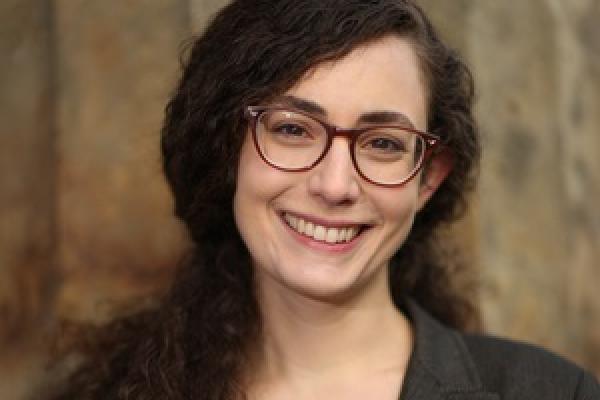
Sonia Gollance (University College London)
Tea Arciszewska's Miryeml (1958/59) and Yiddish Plays by Women
Tea Arcizewska’s play Miryeml is a modernist masterpiece that deftly integrates twentieth-century history and Jewish folklore into a narrative about children’s response to pogroms and the Holocaust. The playwright was a dazzling figure in the prewar Warsaw Yiddish culture scene – as an actress, dramaturge, salonnière, and arts patron. She began writing Miryeml in Yiddish in the 1920s in response to the pogroms that followed World War I in Ukraine. By the time she published it in the 1950s, Miryeml was also understood to be about the Holocaust. Heralded by Yiddish critics as a powerful memorial to the million children murdered in the Holocaust, Miryeml received an I. L. Peretz Prize from the Congress for Jewish Culture for best Yiddish drama. Yet this play was not performed until 2024, when two staged readings of Sonia Gollance's English translation came at a time when depictions of children hiding in cellars had a startling new resonance.
In this talk, Gollance will discuss Arciszewska's life and magnum opus Miryeml. This talk will also address Gollance’s broader project as Managing Editor of Plotting Yiddish Drama (the Digital Yiddish Theatre Project’s database of English-language synopses of Yiddish plays) to locate and include works by women.
Support provided by
the Department of Near Eastern and South Asian Languages and Cultures and
the Melton Center for Jewish Studies
Sonia Gollance is (as of October) Associate Professor in Yiddish Studies at University College London. Her book, It Could Lead to Dancing: Mixed-Sex Dancing and Jewish Modernity (Stanford UP, 2021), was a National Jewish Book Awards finalist. She co-edited a special issue of Feminist German Studies on "When Feminism and Antisemitism Collide" and a special issue of In geveb: A Journal of Yiddish Studies on "Murder, Lust, and Laughter, or, Shund Theater." Her translation of Tea Arciszewska's play Iwas supported by a 2020-21 Translation Fellowship from the Yiddish Book Center. From 2019-2020, she served as Director of the Yiddish and Ashkenazic Studies Program at Ohio State.
